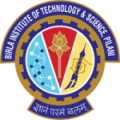Симпозиум iBrain ERASMUS Days
Симпозиум iBrain ERASMUS Days состоится 15 октября 2020 г. в режиме онлайн.
Симпозиум iBrain будет включать в себя презентации проектов, презентации партнеров консорциума, основной семинар профессора Хильке Плассмана (INSEAD, Франция) по когнитивной нейроэкономике и круглый стол.
Приглашаем всех заинтересованных участников зарегистрироваться на увлекательный день или переговоры и обсуждения: http://ibrain.eu/ed2020_reg











